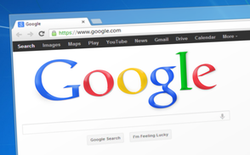The first thing to look at is where did you read the story. A story on the BBC is obviously more likely to be credible than one you read on Yahoo Answers or a personal blog. If you have never heard of the outlet and know nothing about their credibility, you better check it out before you believe what they post.
For example, some of you may be coming to Wizzley for the first time. What do you know about us? Well, for one, there is a team of real life people overseeing the work of the authors. Authors go through a process of approval before first articles can be published. There is also a real set of author rules.
Compare that to Wikipedia. No initial oversight of published articles or authors. Only safeguards are a group of random people that have no vetting who scream more loudly than the others for editing. Some checks have error rates as high as 60% on Wikipedia, and yet, because it looks like a fancy site and people do not take the time to research on their own Wikipedia is used as a factual source by many.
No one site is perfect but know about the rules and regulations of the site before blindly trusting something published there. A random personal blog would need more vetting than something like About.com where the authors actually go through an interview process and are answerable to a home office.







 Quick Leveling Guide for Dawn of the Dragonson 03/28/2014
Quick Leveling Guide for Dawn of the Dragonson 03/28/2014
 ArcSoft Portrait+ Review with Discount Codeon 02/11/2014
ArcSoft Portrait+ Review with Discount Codeon 02/11/2014
 How to Stay Cool in a Heat Waveon 07/17/2013
How to Stay Cool in a Heat Waveon 07/17/2013
 Lowepro Transit Sling 250AW Reviewon 07/05/2013
Lowepro Transit Sling 250AW Reviewon 07/05/2013



Comments
I use a version of that phrase all the time when something is clearly incorrect, or more importantly when I want my way about something ;-) "But honey, I saw it on the internet, it HAS to be true"
Nice post!
Like we've always heard if it sounds too good to be true of far too incredible it likely is not a good reliable source. It is important for readers to use some good common sense and fact checking plus all the great tips you've provided here today
With information bombarding people from all sides these days, I wish that one of the main lessons in schools was how to fact check.